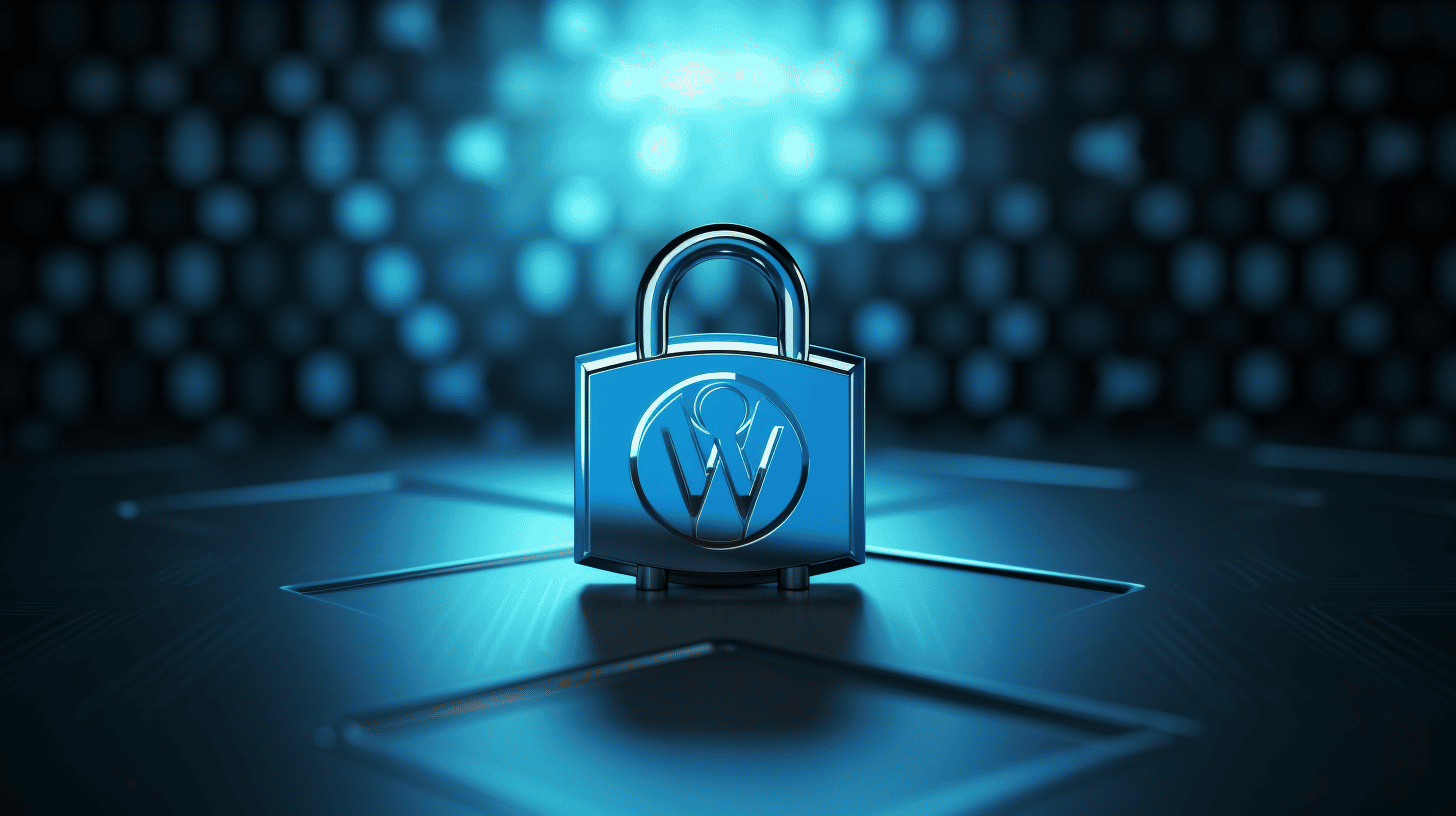When it comes to building a website, WordPress has become the go-to platform for individuals and businesses alike. It offers a user-friendly interface, a vast selection of themes and plugins, and robust functionality. However, with great popularity comes great responsibility, and that includes ensuring the security of your WordPress website.
Website security is a critical aspect of any online presence. Without proper security measures in place, your website becomes vulnerable to cyber attacks, data breaches, and other malicious activities. Attackers are constantly evolving their techniques, making it essential for website owners to stay ahead of the game and proactively protect their digital assets.
In this article, we will dive into the world of WordPress security issues and explore ways to navigate and mitigate potential risks. Whether you’re a seasoned WordPress user or just starting out, understanding the vulnerabilities and implementing best practices will help safeguard your website and give you peace of mind.
So, let’s get started on our journey to fortify your WordPress website against security threats!🔒
Understanding WordPress Vulnerabilities
WordPress is a popular content management system (CMS) that powers millions of websites worldwide. With its ease of use and flexibility, it attracts a large user base ranging from individuals to small businesses to enterprises. However, like any other CMS, WordPress is not impervious to vulnerabilities that can potentially compromise website security. In this section, we will delve into the magnitude of WordPress hacks, the growth of vulnerabilities, and the specific issue of plugin vulnerabilities.
Magnitude of Hacks
WordPress websites are not immune to cyber attacks, and understanding the scope of the problem is crucial in assessing the importance of website security. According to the security scanner SiteCheck, approximately 4.3% of WordPress websites scanned in 2021 suffered hacks[1]. This alarming statistic emphasizes the need for proactive measures to protect WordPress assets and ensure the smooth functioning of websites.
Growth of Vulnerabilities
As the WordPress ecosystem continues to evolve and expand, so do the vulnerabilities that come with it. In recent years, the number of vulnerabilities discovered in the WordPress ecosystem has skyrocketed. In fact, the number of vulnerabilities disclosed in 2023 was more than double that of 2022[2]. This exponential increase highlights the need for ongoing vigilance and regular updates to keep websites secure.
Plugin Vulnerabilities
Plugins are an integral part of the WordPress ecosystem, enabling users to extend the functionality of their websites. However, they also pose a significant risk in terms of vulnerabilities. Alarmingly, about 90% of WordPress vulnerabilities are plugin vulnerabilities[3]. With thousands of plugins available, it’s essential to carefully evaluate and select reputable and regularly maintained plugins to minimize the risk of exploitation.
To effectively protect WordPress assets and prioritize website security, IT managers and website owners need to be proactive, alert, and take appropriate measures. Implementing a comprehensive security strategy that includes regular updates, strong passwords, and reputable security plugins can go a long way in safeguarding WordPress websites against potential threats.
For more information on how to protect your WordPress assets, please visit Protecting WordPress Assets.
Market share of WordPress
WordPress has emerged as the leading content management system (CMS) in the digital sphere, boasting an impressive market share of 63.5%. This staggering figure indicates a consistent growth rate of over 10% throughout the years. So, what is it about WordPress that has propelled it to such a dominant position? Let’s take a closer look at its features and benefits.
Impressive Market Dominance:
- WordPress holds the largest market share among all CMS platforms, leaving its competitors behind.
- With its user-friendly interface and extensive customization options, WordPress has become the go-to platform for individuals and businesses alike.
Robust and Versatile Functionality:
- WordPress offers a wide range of features and functionality that cater to all types of websites, from personal blogs to e-commerce stores and corporate websites.
- Its vast collection of plugins, themes, and templates allows users to create unique and visually appealing websites with ease.
- The flexibility of WordPress enables it to adapt to the evolving needs of users, making it a reliable choice for long-term website management.
Ease of Use and Accessibility:
- One of the main reasons behind WordPress’s popularity is its intuitive user interface, which requires no coding skills.
- Beginners can quickly get started with WordPress, customizing their site using its drag-and-drop functionality.
- Its extensive documentation and active community support make it easy for users to troubleshoot issues and enhance their website functionalities.
SEO-Friendly:
- WordPress provides built-in SEO features that help websites rank higher in search engine results.
- Plugins like Yoast SEO and All in One SEO Pack offer additional optimization options, making it easier to improve website visibility.
Mobile-Responsive Design:
- With the growing use of mobile devices, having a mobile-responsive website is crucial. WordPress offers numerous responsive themes that ensure your site looks great on any device.
Security Measures:
- WordPress has a dedicated team constantly working on security updates, making it a secure platform for website owners.
- By regularly updating your WordPress installation, themes, and plugins, you can easily protect your site from potential vulnerabilities.
In conclusion, the market share of WordPress speaks volumes about its popularity and reliability as a CMS platform. With its robust functionality, ease of use, and extensive customization options, WordPress continues to dominate the market and empower individuals and businesses worldwide to create stunning websites.
WordPress Plugin Issues
WordPress plugins are a fantastic way to enhance the functionality of your website and add exciting features. However, they can also come with their fair share of issues. In this article, we will explore two critical aspects of WordPress plugin issues: “Publicly Disclosed Vulnerabilities” and the consequences of using “Outdated Plugins.”
Publicly Disclosed Vulnerabilities
Over the years, WordPress has grown in popularity, making it an appealing target for hackers. As a result, plugin vulnerabilities have become a significant concern for website owners and administrators. The WordPress community takes plugin security seriously, regularly monitoring and addressing vulnerabilities to ensure the best possible experience for users.
Here are some essential insights related to publicly disclosed vulnerabilities in WordPress plugins:
- Since the last report, 36 new vulnerabilities have been publicly disclosed in WordPress plugins1. These vulnerabilities can range from minor issues to critical security flaws, making it crucial to stay vigilant and keep your plugins up to date.
- The WordPress community, plugin developers, and security experts work tirelessly to fix vulnerabilities and release updates. It’s essential for website owners to keep their plugins updated to benefit from these security patches.
To protect your website from potential vulnerabilities, it’s essential to follow best practices for plugin management:
- Regularly update plugins: Keep an eye on plugin updates and ensure that you install them promptly. New versions often include bug fixes and security patches that address any vulnerabilities found.
- Be selective with plugins: Before installing a plugin, thoroughly review its ratings, reviews, and update frequency. Choose plugins from reputable sources and developers to minimize the risk of encountering security issues.
- Disable or delete unused plugins: If you’re not actively using a plugin, it’s best to disable or delete it from your website. Unused plugins can be a potential source of vulnerabilities, so keeping your site streamlined and plugin-free can help improve security.
By following these practices, you can significantly reduce the chances of falling victim to publicly disclosed vulnerabilities.
Outdated Plugin Consequences
Another critical aspect of WordPress plugin issues is the consequences of using outdated plugins. Failure to update plugins regularly can leave your website vulnerable to attacks. Let’s take a closer look at the potential consequences of neglecting plugin updates:
- Security vulnerabilities: Outdated plugins are responsible for a staggering 92% of WordPress vulnerability reports2. Hackers are aware of these vulnerabilities and actively exploit them to gain unauthorized access to websites. Without regular updates, your website becomes an easy target for malicious attacks.
- Compatibility issues: WordPress frequently releases new versions with improved features and enhanced security measures. By neglecting plugin updates, you risk encountering compatibility issues with the latest WordPress version. This can result in plugin malfunctions, broken functionalities, and an overall poor user experience.
- Performance degradation: Outdated plugins can significantly impact your website’s performance, leading to slower page load times and reduced user satisfaction. Keeping your plugins updated ensures optimal compatibility and performance, ultimately benefiting your website visitors.
To avoid the detrimental consequences of outdated plugins, make sure to:
- Set up automatic updates: Enable automatic updates for your plugins whenever possible. This ensures that you receive the latest security patches and bug fixes without manual intervention.
- Regularly audit your plugins: Periodically evaluate the plugins installed on your website. Remove any unused or unsupported plugins, and replace them with up-to-date alternatives.
- Stay informed: Keep yourself updated with the latest news and announcements from plugin developers and the WordPress community. Subscribe to security mailing lists, follow plugin development blogs, and be proactive in staying informed about potential vulnerabilities or updates.
Taking these steps will help you maintain a secure, stable, and high-performing WordPress website, protecting it from the risks associated with outdated plugins.
In conclusion, maintaining plugin security and staying up to date with updates are critical for all WordPress website owners. By being proactive and following best practices, you can mitigate the risks of vulnerabilities and ensure a safe and secure online presence for your business or personal website.
For a hands-on solution to plugin vulnerabilities, check out this helpful resource: Solution to Plugin Vulnerabilities.
How to Navigate WordPress Security Issues
🔒🌐 Introduction 🔒🌐
WordPress is one of the most popular content management systems in the world, powering millions of websites. However, its popularity also makes it a prime target for hackers and malicious actors. Therefore, it’s crucial to take proactive measures to ensure the security of your WordPress website. In this article, we will explore three essential steps you can take to navigate and mitigate potential security issues effectively.
Keeping Plugins Updated
WordPress plugins are instrumental in extending the functionality of your website. They offer a wide range of features and capabilities that can enhance your website’s performance and user experience. However, outdated or vulnerable plugins can become potential entry points for hackers.
Updating your plugins regularly is a critical step in maintaining the security of your WordPress website. It helps ensure that any known vulnerabilities are patched and that you are benefiting from the latest security enhancements. Here are a few tips to help you keep your plugins updated:
- Enable automatic updates: WordPress allows you to enable automatic updates for plugins. This feature ensures that you never miss an important security update.
- Regularly review and delete unused plugins: Unused plugins can be a security risk, especially if they are no longer maintained by their developers. Regularly review your installed plugins and delete any that you are not actively using.
- Check plugin compatibility: Before updating a plugin, check its compatibility with your current WordPress version. Some plugins may not work correctly with newer versions of WordPress, which can lead to potential security issues.
Remember, keeping your plugins updated is one of the most effective ways to prevent security breaches on your WordPress website. Stay proactive and prioritize plugin maintenance.
Secure Hosting Solution
Choosing the right hosting provider is crucial for your WordPress website’s security. A reliable and secure hosting solution can help protect your site from various types of attacks, such as distributed denial of service (DDoS) attacks and unauthorized access attempts. Here are some key factors to consider when selecting a hosting provider:
- SSL Certificates: Look for a hosting provider that offers SSL certificates as part of their hosting packages. SSL certificates encrypt the data transmitted between your website and your visitors, securing sensitive information.
- Server Firewall: A hosting provider with a robust server firewall can help block malicious activities and prevent unauthorized access to your website.
- Regular Backups: Choose a hosting provider that regularly backs up your website data. In case of any security breach or data loss, you can quickly restore your website to its previous state.
- 24/7 Security Monitoring: Opt for a hosting provider that provides round-the-clock security monitoring to detect and address any potential security threats promptly.
Investing in a secure hosting solution is an investment in the overall security and stability of your WordPress website. It provides a solid foundation to protect your site against cyber threats.
Strong User Credentials
The strength of your user credentials can significantly impact the security of your WordPress website. Weak passwords or outdated authentication methods make it easier for hackers to gain unauthorized access to your site. Here are some best practices to follow when it comes to user credentials:
- Unique and Complex Passwords: Encourage your users to create unique and complex passwords that include a combination of uppercase and lowercase letters, numbers, and special characters. Implementing a password strength meter can guide users in creating secure passwords.
- Two-Factor Authentication (2FA): Enable two-factor authentication for your WordPress website. This adds an extra layer of security by requiring users to verify their identity through a second factor, such as a mobile app or SMS code.
- Regularly Review User Accounts: Regularly review the user accounts on your WordPress website. Delete any unnecessary or unused accounts to reduce the potential attack surface.
Taking the time to strengthen your user credentials is a crucial step in bolstering the security of your WordPress website. By implementing robust password policies and enabling additional authentication measures, you can significantly reduce the risk of unauthorized access.
🔒🌐 Conclusion 🔒🌐
Proactively navigating WordPress security issues is vital to protect your website and its valuable content. By keeping your plugins updated, choosing a secure hosting solution, and strengthening user credentials, you are taking significant steps towards ensuring the security of your WordPress website. Remember, a secure website not only protects your data but also provides peace of mind for you and your visitors.
For more tips on boosting your WordPress website security, check out Supercharge Your WordPress Security. Stay safe and ensure the long-term success of your WordPress website!
Conclusion
In conclusion, navigating website security issues on WordPress requires a proactive approach and constant vigilance. With the growing magnitude of hacks and vulnerabilities, it’s crucial to implement effective security measures to protect your website and data.
By keeping your WordPress plugins updated and ensuring they come from trusted sources, you can reduce the risk of exposing your website to vulnerabilities. It’s also essential to choose a secure hosting solution that offers robust security features and regular backups to safeguard your website from potential threats.
Additionally, creating strong user credentials, including unique and complex passwords, can significantly enhance the security of your WordPress website. This simple step can help prevent unauthorized access and potential breaches.
Remember, website security is an ongoing process that requires continuous monitoring and proactive measures. By staying informed about the latest security practices and investing in a reliable managed WordPress hosting platform like Managed-WP™, you can mitigate security risks and protect your online presence effectively.
Managed-WP™ offers a comprehensive suite of services, including expert WordPress support, proactive monitoring, backup management, and patch management. With Managed-WP™, you can simplify your website’s infrastructure, gain freedom in your digital experiences, and ensure the highest level of security for your WordPress website. Don’t leave your website’s security to chance – choose Managed-WP™ and enjoy peace of mind. 💪🔒
Frequently Asked Questions
- What are common website security issues on WordPress?
Some common website security issues on WordPress include malware infections, brute force attacks, outdated software, weak passwords, insecure plugins/themes, and inadequate user permissions.
- Which security plugins are recommended for WordPress?
Some popular security plugins for WordPress are Wordfence, Sucuri Security, iThemes Security, and All In One WP Security & Firewall. These plugins offer features like malware scanning, firewall protection, login security, and website monitoring.
- What steps can I take to secure my WordPress website?
To secure your WordPress website, you should keep the software, themes, and plugins updated, use strong passwords, limit login attempts, install a security plugin, backup your site regularly, use SSL encryption, and carefully review user permissions.
- How can I scan and clean malware from my WordPress website?
You can scan and clean malware from your WordPress website by using security plugins like Wordfence or Sucuri. These plugins provide scanning functionality to detect malware, and you can then follow the recommended steps to remove any infected files.
- What should I do if my WordPress website gets hacked?
If your WordPress website gets hacked, you should immediately take steps such as restoring from a clean backup, resetting passwords for all user accounts, updating all software and plugins, scanning for malware, and implementing additional security measures to prevent future attacks.



















